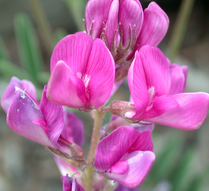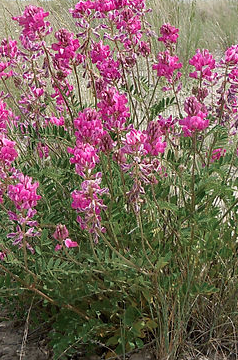 Hedysarum boreale, Sweetvetch Hedysarum boreale, Sweetvetch We can think of at least 180 great forest garden & perennial crops for cold climate Sweden. Want to hear about them? Over the course of the next year we will profile 5 a week on the blog. Perennial plants and crops offer a low energy, oil & resource input based foundation for future-proof agricultures. By default if an agriculture is to be called regenerative the bottom line is that it must be soil building, not soil depleting. Relentless deep tillage & poor soil husbandry (wifery?!) contributes to the majority of the 24 billion tons of topsoil lost every year on planet water. We are going to be focused on holistic polyculture grazing and perennial production at ridgedale over most of the site as this represents the most effective way to restore our degraded landscape, produce high value produce and ensure the future resource base we are managing holistically for in our decision making.  Genus Hedysarum Species boreale Common Name Sweetvetch Form herb Habit running Origin North America Light sun Moisture mesic Edible roots Nirogen Yes Groundcover Yes Hedysarum boreale is a species of flowering plant in the Fabaceae, or legume family, and is known by the common names Utah sweetvetch, boreal sweet-vetch, northern sweetvetch,and plains sweet-broom. It is native to North America, where it is widespread in northern and western regions of Canada and the United States. The ssp. mackenziei can even be found in the Canadian Arctic Archipelago. (The sub-species H. boreale mackenzii is said to have a slightly toxic root, but no mention about toxicity for this species has been found.) Young tender roots can be eaten raw or cooked. Sliced and eaten raw, boiled, baked or added to soups they have a sweet carrot or liquorice-like flavour. OUR FRIENDS AT PFAF HAVE AN AMAZING DATABASE OF SPECIES (UK BASED);
0 Comments
Leave a Reply. |
Details
Like us on FB Below for regular updatesStay up to date with customized updates you want to receive
Upcoming coursesArchives
December 2016
Categories
All
|

 RSS Feed
RSS Feed